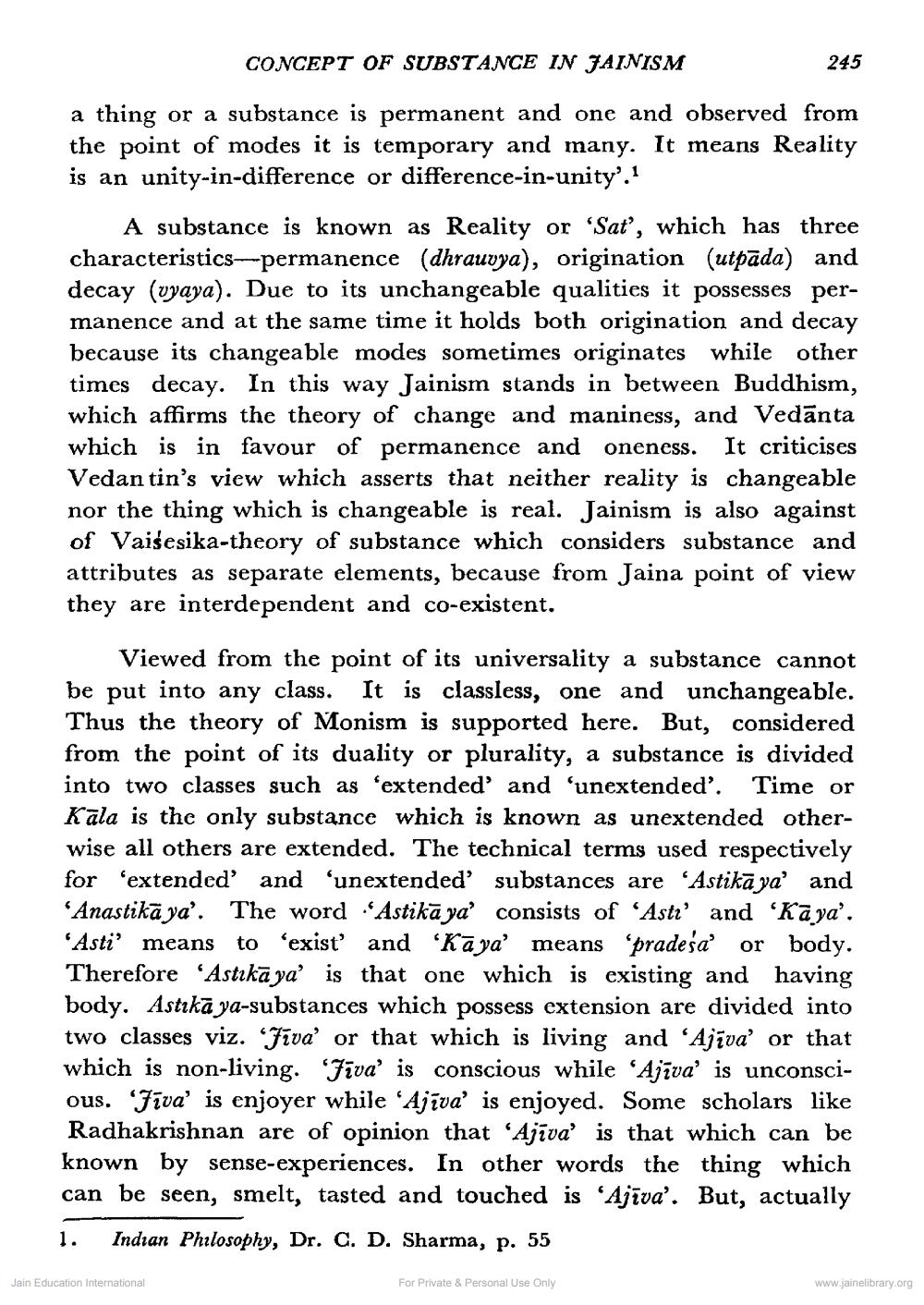________________
CONCEPT OF SUBSTANCE IN JAINISM
245
a thing or a substance is permanent and one and observed from the point of modes it is temporary and many. It means Reality is an unity-in-difference or difference-in-unity'.1
A substance is known as Reality or 'Sať, which has three characteristics-permanence (dhrauvya), origination (utpada) and decay (vyaya). Due to its unchangeable qualities it possesses permanence and at the same time it holds both origination and decay because its changeable modes sometimes originates while other times decay. In this way Jainism stands in between Buddhism, which affirms the theory of change and maniness, and Vedānta which is in favour of permanence and oneness. It criticises Vedan tin's view which asserts that neither reality is changeable nor the thing which is changeable is real. Jainism is also against of Vaisesika-theory of substance which considers substance and attributes as separate elements, because from Jaina point of view they are interdependent and co-existent.
Viewed from the point of its universality a substance cannot be put into any class. It is classless, one and unchangeable. Thus the theory of Monism is supported here. But, considered from the point of its duality or plurality, a substance is divided into two classes such as 'extended' and 'unextended'. Time or Kāla is the only substance which is known as unextended otherwise all others are extended. The technical terms used respectively for 'extended' and 'unextended' substances are 'Astikā ya' and 'Anastikā ya'. The word "Astikā ya' consists of 'Astr' and 'Kaya'. 'Asti' means to 'exist' and 'Kaya' means 'pradeśa' or body. Therefore 'Astıkā ya' is that one which is existing and having body. Astıkā ya-substances which possess extension are divided into two classes viz. 'Jiva' or that which is living and 'Ajīva' or that which is non-living. "Jiva' is conscious while 'Ajīva' is unconscious. 'Jīva' is enjoyer while 'Ajiva is enjoyed. Some scholars like Radhakrishnan are of opinion that 'Ajīva' is that which can be known by sense-experiences. In other words the thing which can be seen, smelt, tasted and touched is 'Ajiva'. But, actually 1. Indian Philosophy, Dr. C. D. Sharma, p. 55
Jain Education International
For Private & Personal Use Only
www.jainelibrary.org




